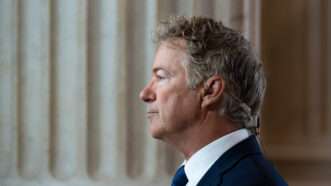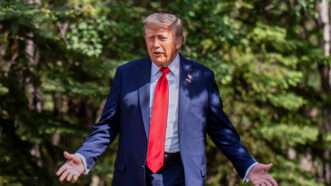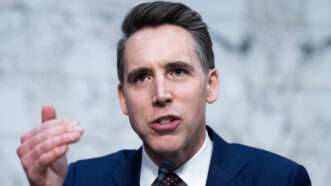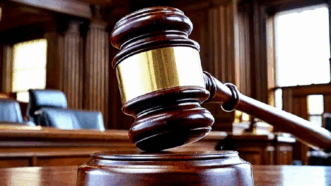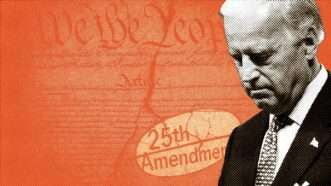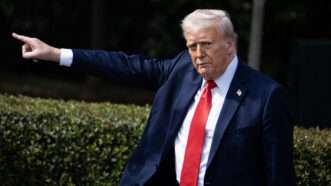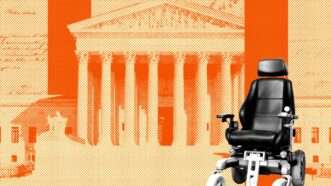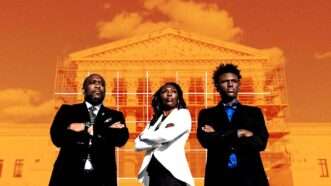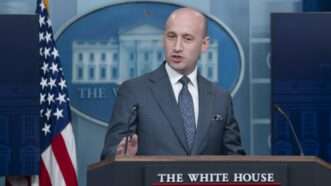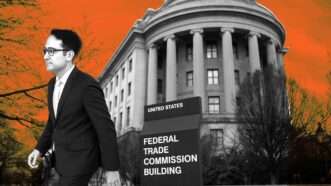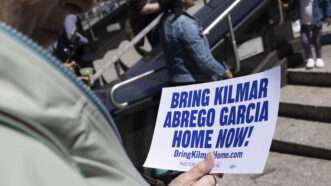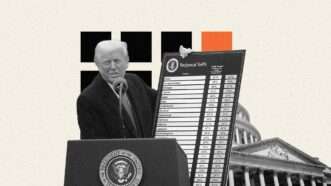Law & Government
Fighting Antisemitism Should Not Come at the Expense of the First Amendment
The Antisemitism Awareness Act threatens the First Amendment by empowering federal bureaucrats to police political and religious expression.
Don't Let Rights-Violating Federal Agents Dodge Accountability
Plus: The Texas Chain Saw Massacre on wax.
If Brendan Carr Cares About Free Speech, He Should Make These Changes at the FCC
Now is the perfect time for the FCC to change its precedent to comply with the First Amendment.
Whether or Not Trump Invokes It, the Insurrection Act Is Antiquated and Dangerously Broad
On its face, the law gives the president sweeping authority to deploy the military in response to domestic disorder.
Josh Hawley Wants To Raise the Minimum Wage
It’s not the only way the Republican senator is closer to democratic socialism than to traditional conservatism.
New Real Estate Regulations in Massachusetts Shrink Homebuyers' Negotiating Power
A new state law will make it harder to waive inspections.
Trump's Immigrant Removals Aren't Technically Deportations. So What Are They?
Deportation means expelling an alien back to their home country for violating immigration law. Many of the Trump administration's actions don't meet that definition.
Does the Senate Reconciliation Bill Contain a Threat to Judicial Independence? Or Is It a Welcome Limit on Universal Injunctions?
The Senate has adopted its own version of a provision designed to limit preliminary injunctions against the federal government when no bond is posted.
Is the Business of the Roberts Court (Still) Business?
My contribution to an interdisciplinary symposium on "Donald J. Trump, the Supreme Court, and American Constitutionalism"
GOP Senate Version of the Big Beautiful Bill Includes an Ugly Attack on Courts' Ability to Protect Constitutional Rights
It requires litigants seeking preliminary injunctions against illegal government actions to post potentially enormous bonds.
Have Presidents Grown Too Powerful To Be Removed From Office?
Joe Biden showed that the 25th Amendment doesn't work. Donald Trump showed that impeachment is broken too.
Some Federal Agencies Are Actually Getting More Efficient
Downsizing pushed the Tobacco Tax and Trade Bureau to adopt tech solutions that it could have tried years ago.
The Trump Administration Just Created Hundreds of Thousands of Illegal Immigrants
A blow to recent arrivals from Cuba, Haiti, Nicaragua, and Venezuela
The Restraining Order Against Federalizing the California National Guard Highlights Trump's Lawlessness
U.S. District Judge Charles Breyer concluded that the president failed to comply with the statute he cited—and violated the 10th Amendment too.
My New Verfassungsblog Article On "The Nondelegation Case Against Trump's New Travel Ban"
It explains why a nondelegation challenge could work and deserves to win, despite Trump v. Hawaii.
Supreme Court Rules, Again, That Different Standards for Discrimination Plaintiffs Are Unconstitutional
The Court ruled unanimously in favor of a disabled teenage girl and her family, who faced a higher bar to prove that her school discriminated against her.
Federal Court Rightly Invalidates Trump's Illegal Federalization of California National Guard Troops
Trump's policy here is yet another example of abusive invocation of emergency powers.
The FBI Raided This Innocent Georgia Family's Home. The Supreme Court Just Revived Their Lawsuit.
Agents detonated a grenade and broke into the house, guns drawn. But while the decision is good news for Curtrina Martin and Toi Cliatt, their legal battle is far from over.
Trump's L.A. National Guard Deployment Stands on Shaky Legal Ground
Plus: When Stalin Meets Star Wars.
What Happens if the Department of Education Goes Away?
Most of what the department does would likely stick around, for better or for worse.
Extending the Trump Tax Cuts Is a Good Idea. But It Won't Deliver 'Big, Beautiful' Economic Growth.
The budget legislation is full of other expensive provisions that will add trillions to our sky-high national debt.
Trump's 'Big Beautiful Bill' Would Boost Subsidies for Rich Farmers
Subsidies inherently skew the market, and farm subsidies are no different.
Why Donald Trump and Josh Hawley Are Wrong To Call for Jailing People Who Burn the American Flag
The Supreme Court ruled decades ago that burning the flag is protected by the First Amendment, no matter how offensive that act may be.
DOJ Sues Coffee Shop for Allegedly Denying Service to Jewish Customers
According to the suit, workers denied service to and shouted epithets at two men wearing Star of David baseball caps in 2024.
New Mexico Appeals Court Dismisses Suit Seeking to Compel Greater Environmental Regulation under State Constitution
The appeals court concludes the lawsuit failed to present a claim upon which relief can be granted under state law.
The Trump Administration Is Escalating an Immigration Crisis It Promised To Resolve
The border is no longer the focus. Now, the White House wants you to believe that the crisis extends to nail salons, hardware stores, farms, and restaurants across the country.
Federal Circuit Grants Government's Motion for Stay Pending Appeal in Our Tariff Case
It's disappointing. But the court will hear the case on the merits on an expedited basis, and we have a strong case.
He Fell Behind on His Taxes. So the Government Seized His Home, Sold It, and Kept the $258,000 Profit.
But now his case against the government can move forward.
Aspiring Barbers and Cosmetologists in Iowa Can Now Learn on the Job Instead of Paying Thousands for Classes
A new law creates an apprenticeship program allowing unlicensed Iowans to make an income from providing cosmetology and barbering services.
Gavin Newsom Defends Federalism Against Trump's Unilateral National Guard Deployment
In a federal lawsuit, California's governor argues that the president's assertion of control over "the State's militia" is illegal and unconstitutional.
The Tom Cotton Do-Over
Trump and the right are living out their fantasies of rewriting the awful summer of 2020.
New Orleans Police Officer Who Shot a Puppy Will Face Trial
This is far from the first time a cop has shot a dog for seemingly no reason.
Missouri Town Wants To Seize Local Businesses Over Chipped Paint and Cracked Sidewalks
Brentwood business owners are challenging the city’s definition of blight in an ongoing lawsuit against city officials' use of the dubious designation to invoke eminent domain.
Democratic FTC Commissioner Quits—But That Doesn't Mean He's Dropping His Lawsuit
Trump fired Federal Trade Commissioner Alvaro Bedoya in March. Yesterday he gave up his claim to the job, but he's still challenging the White House's right to dismiss him.
A Prosecutor Allegedly Tried To Jail Him for Fighting Civil Forfeiture. He May Finally Get His Day in Court.
Law enforcement seized Robert Reeves' Chevrolet Camaro without charging him with a crime. After he filed a class-action lawsuit, that changed.
Arresting Someone for Violating a Probation Condition That Doesn't Exist …
would violate the Fourth Amendment, holds the Eleventh Circuit.
The Divisions Among the Court's Originalists
Professor Joel Alicea on how to understand what may be the most important jurisprudential divisions on the Supreme Court.
DOJ Brings Kilmar Abrego Garcia Back to the U.S. After Insisting It Couldn't
The Department of Justice brought the deported Salvadoran back to U.S. soil for trial, reversing its long-held contention that he would "never" return.
Should the Seventh Amendment Civil Jury Trial Right Apply to the States?
The right to a civil jury trial is far more deeply rooted in American history and tradition than is the right to own guns, which the Supreme Court was right to incorporate.
Defending the Court of International Trade Ruling Against Trump's Tariffs - A Reply to John Yoo
Yoo's criticisms are off the mark, for a variety of reasons. But, tellingly, he actually agrees Trump's IEEPA tariffs are illegal, merely disagreeing with the court's reasons for reaching that conclusion.

